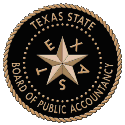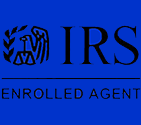CP 2210 Or CP 220 Penalty Notice For Failure To Deposit
Unique Solutions to Your IRS Problems
Over 3000 Satisfied Customers Since 1980.
GET Free Valuable Information on Taxes and the IRS?
HAVE Stephanie Evaluate Your IRS Tax Situation For FREE?
Why Choose Us?
Held To Highest Standard

Knows the IRS Inside and Out

IRS Problems, Tax Problems, Tax Accountants, IRS Tax Attorneys, Tax Relief Help CPA, In Houston, Texas.
“Solving IRS problems has been my life’s work. After 40 years and 1,000’s of successful tax cases I can safely say, “I know the IRS Business like the back of my hand”. How would you like to never worry about the IRS again? Let my past knowledge and experience work for you”
– Joe Mastriano, CPA
Joe is a member of the Sugar Land Rotary, whose mission includes promoting integrity, fellowship, and good will.
Free Evaluation
What Our Clients Say About Us
Let Our Accounting Firm Help You Solve All Your IRS Problems…
Free Evaluation
The CP 210 or CP 220 is the Penalty Notice for Failure to Deposit. Basically, it is the notification of a change or alteration made to the tax return. There are different kinds of adjustment notices that are sent by the IRS. CP 210 and CP 220 are two of these notices. In these notices, you may be informed about credit transfers or penalty changes that are made to your account.
When you receive a penalty or other change notice, check your records against the notice.
Check circular E and make sure you understand when to make your deposits, and how much they should be. You should not rely on IRS notices to tell you how often to deposit. You also must use the correct deposit method. Certain large employers must use the eftps electronic deposit system and not make regular bank deposits.
When you receive the CP 210 or CP 220 penalty notice, then there can be two scenarios: the penalty does not apply or it is properly assessed. There are few cases where the penalty does not apply. When you are certain that the information shown by the Service is wrong, then you should contact the IRS to have it adjusted. After the IRS agrees, the penalty will be removed. One of the reasons for which the penalty can be removed is if you can prove that you depended on the erroneous advice from the Service. If it’s large enough, and you need someone who understands the reasons for removal, then call us at 713-774-4467 and we may be able to help you. You can also look under the “free advice” tab and see what we have to say about removing penalties.
As long as you have reasonable cause, it will be possible for you to get the CP 210 or the CP 220 penalty removed by the IRS. However, this may not be an easy task.
- If you are considering hiring us, call Joe Mastriano, CPA 713-774-4467.
- Think your IRS matter is handled? Think again!
- For your analysis, click here to contact us.